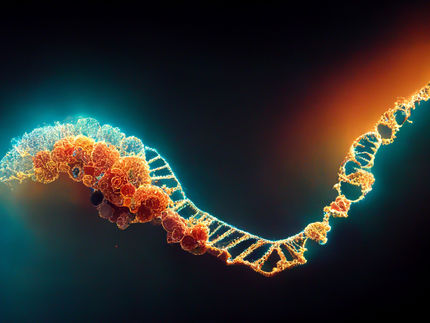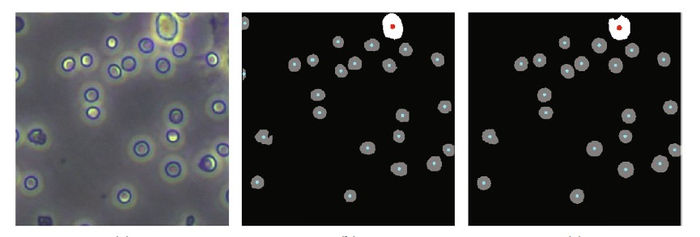Shaking-up Gene Delivery in the Neurodegenerative Disease World
FierceBiotech recently announced its list of “10 Top Next-Gen Biotech Platforms”. Among the list is San Diego-based Ceregene, which is developing a novel neurotrophic factor gene therapy delivery via adeno-associated virus vectors (AAV). According to FierceBiotech, Ceregene’s second-generation product will shake up the neurodegenerative disease research field and make “Big-Pharma” quake in their boots.
Ceregene’s technology is aimed at reducing symptoms and reversing or slowing progression of degenerating neurons by using nerve growth factors (NGFs). These factors, such as neurturin, play a crucial role in brain and eye development to increase vitality and function. Conventional treatment for diseases such as Huntington’s disease and Parkinson’s disease include oral therapy and deep brain stimulation. However, since NGFs are large proteins, delivery to the brain is extremely difficult due to low level of absorption and passage through the blood brain barrier. Ceregene novel adeno-associated virus vector aims to address this unmet need that currently exists. The vector uses a strain from the parvovirus family (a non-pathogenic strain to humans) which carries neurturin into the appropriate brain tissue through brain surgery. The desired therapy outcome is that the NGF will remain indefinitely within the targeted brain tissue and emit its therapeutic properties.
For an 11 year old company, Ceregene has an impressive financial backing, which includes several investors and over $120m in equity and non-dilutive financing. In addition, their pipeline covers Parkinson’s disease, Alzheimer’s disease, Huntington’s disease, Amytrophic Lateral Sclerosis and several ocular diseases in pre-clinical to clinical phase II development.
Various stages of clinical trials are currently underway. CERE-120 Phase IIb trial for Parkinson’s disease enrollment is now complete with 51 patients. The treatment arm for the CERE-120 trial consists of NGF and current anti-Parkinson treatment regime versus current anti-Parkinson treatment regime only. Also, CERE-110 for Alzheimer’s disease is in Phase II trials in collaboration with the Alzheimer’s Disease Cooperative.
While using AAVs is a promising therapeutic approach, it is important to note that historically, gene therapy delivery results during pre-clinical studies are overwhelmingly more positive than subsequent clinical trial studies due to the possibility of strain variation. It is theorized that differences in animal models used during pre-clinical studies also adds to this dilemma. As a result, Ceregene must be vigilant and monitor for safety issues such as pathogenic reaction to the implanted virus. Also, since deep brain stimulation successfully relieves symptoms in patients with neurodegenerative conditions, and over time patients may be able to lower their oral dosages, it is imperative that Ceregene’s delivery system of NGF provides a clear therapeutic advantage in order to replace the current standard of care. Advantages are likely to include the ability to decrease a patient’s reliance on oral drugs for symptomatic relief, and the less-invasive nature of the therapy as no resecting surgery is needed to replace implant devices.
GlobalData is cautiously optimistic that if future trial results for CERE-120 and CERE-110 are positive, then Ceregene’s virus vector gene delivery systems will indeed shake up the neurodegenerative research field, by representing the first step to a curative treatment for patients with these diseases. To have this therapeutic option could potentially transform the existing treatment paradigm for these diseases, and significantly improve quality of life for neurodegenerative patients. Moreover, positive Phase II results will make Ceregene an enticing target for big players in the neurodegenerative sector, such as Pfizer and Novartis who will continue to see their branded drug sales erode over the next 1-2 years due to generic competition. These companies will likely be keeping an eye on Ceregene to see if its novel delivery platform lives up to expectation, and does indeed shake up the neurodegenerative field.
Other news from the department business & finance
Most read news
More news from our other portals
See the theme worlds for related content
Topic world Gene therapy
Genetic diseases once considered untreatable are now at the center of innovative therapeutic approaches. Research and development of gene therapies in biotech and pharma aim to directly correct or replace defective or missing genes to combat disease at the molecular level. This revolutionary approach promises not only to treat symptoms, but to eliminate the cause of the disease itself.

Topic world Gene therapy
Genetic diseases once considered untreatable are now at the center of innovative therapeutic approaches. Research and development of gene therapies in biotech and pharma aim to directly correct or replace defective or missing genes to combat disease at the molecular level. This revolutionary approach promises not only to treat symptoms, but to eliminate the cause of the disease itself.


























































